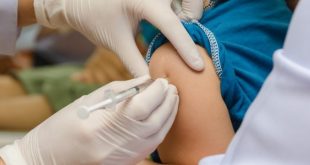According to the recent research works in the Healthcare sector, there are a number of shortcomings in the primary healthcare field and their eradication is one of the main challenges before the Health Ministry.
The Health Field’s Barometer – the 6th Wave”, a research work by Curatio fund, reads that the quality of health services and problems with continuous education programs are considered one of the main problems in the Health System.
It is interesting what reasons have inspired these shortcomings and how they can be resolved. Rusudan Jashi, head of the association for development of clinic pharmacology and rational pharmacotherapy, overviews these issues.
Representatives of the medical sector and doctors agree that doctors must not have motivation or interest to prescribe inappropriate or excessive medications to patients. There are companies in Georgia that own both pharmaceutical companies and clinics.
Doctors of these clinics frequently prescribe medications manufactured by the same company. How the polypragmasy risks grow in this case?
This problem does not exist in only Georgia. Many countries face the same problems. When talking about the clinic management, we should also remember that they are not created here. Our associations take samples from Europe, basically, and those practices are tailored to the Georgian reality. Doctors follow the clinic management protocols despite who owns the clinic. When this practice is established, polypragmasy will be also reduced.
No owner or manager will tell the doctor to prescribe inappropriate medication to a patient that does not fit the protocol. We should assist doctors by supplying more literature to them and by involving them in the professional education system.
The Georgian Health Ministry plans to carry out reforms in the primary healthcare chain. Do you cooperate with the Ministry and would you issue some recommendations to eliminate the polypragmasy problem?
The research shows that the very primary healthcare chain contains a number of problems. Polypragmasy is met in the hospital sector too, but protocols and guidelines regulate these issues somehow. In this respect the role of clinic pharmacology is decisive. Regretfully, clinical pharmacology is not educated at medical institutions. There is no institute of specialization with focus on clinic pharmacology. I have personally taught clinic pharmacology at the medical institution since 1987. In the course of time the academic hours decreased and finally, this subject was fully removed. Therefore, this problem is of system character and I believe the solution consists in due education. It is easier to teach students than to make doctor give up habits.
What is the international practice in this respect?
Almost in all countries clinics cannot receive licenses if they do not have clinic pharmacologists. As a rule, patients bear several diseases. A patient may be diseased by diabetes, cardiovascular diseases and so on. This signifies, under the protocol, several medications should be prescribed for every disease and finally, doctor may prescribe 10 and more medications. In this case clinics need clinic pharmacologists that will control the whole process.
What is your information about the current situation in regions, especially in highland villages?
Currently I work in Batumi. I am a chief pediatrician of the Ajara Autonomous Republic and therefore, I have to frequently visit highland districts of Ajara. I would not say urban doctors have more information. When pharmaceutical companies want to spread information about their own medications, they often bring doctors through minivans in order to fix information about their medications. In this way they manage to cover almost all regions of Georgia, because this is the interest of companies. However, this does not signify similar information is sufficient.
Finally, we often hear that doctors have certain motivation to prescribe this or that medication. Should we consider low salaries the main reason for similar practice?
When working in the Pediatric Institute, my salary was frozen for several years. We have also overcome the period of Coupons. Despite these factors, we have never prescribed medications in order to receive benefits. This is the issue of ethics and it derives from the human mindset. I think a lack of information is one of the main inspirers of this problem.
What would be the most optimal solution in this situation? What measures should the Health Ministry carry out to protect doctors from overall accusations in all problematic situations?
The Authorities should develop a continuous medical education program. The union of medical associations has recently proposed the issue of undertaking the continuous medical education program. The association of clinic pharmacology is ready to join this process to upgrade the existing knowledge in the clinic pharmacology field. We expect the program details and the participant parties will be famous in early May.

 Jandacva.ge
Jandacva.ge








